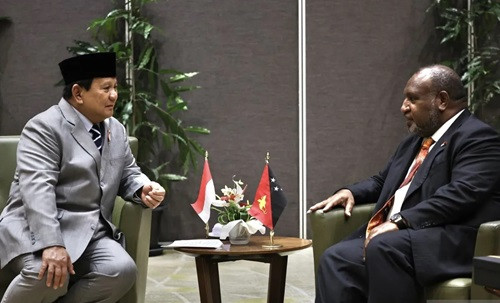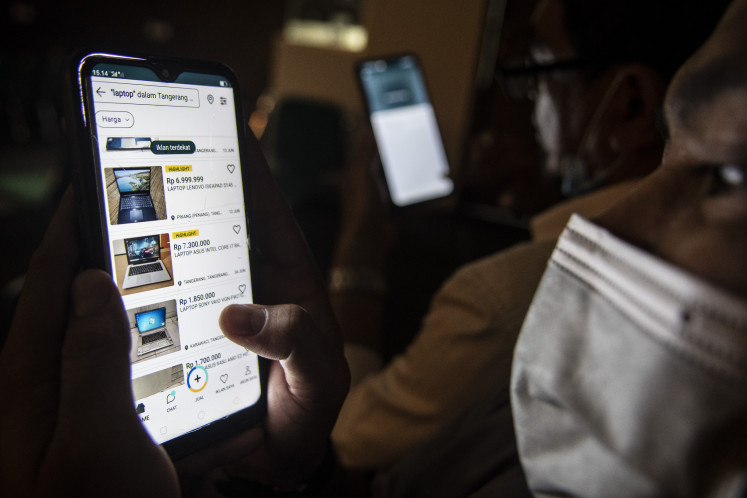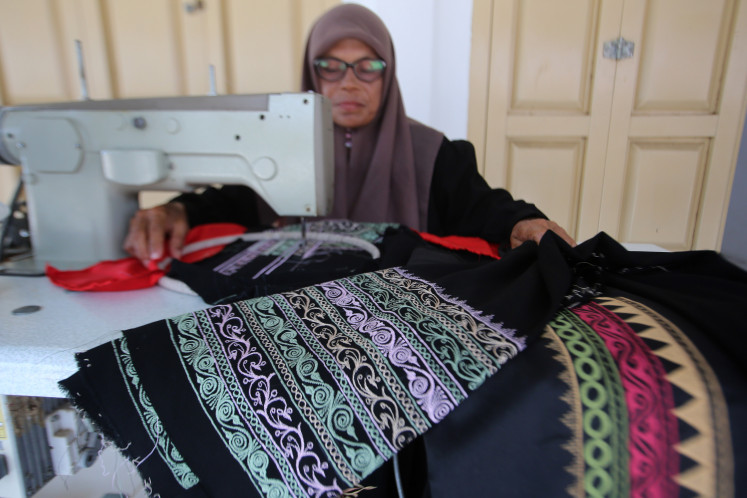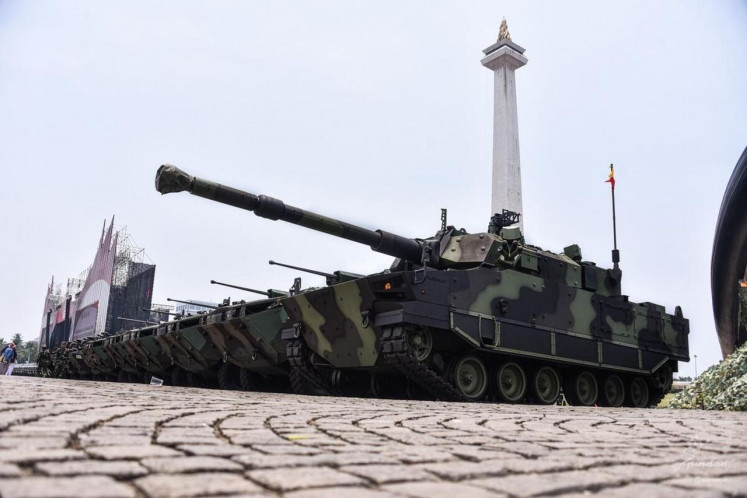Popular Reads
Top Results
Can't find what you're looking for?
View all search resultsPopular Reads
Top Results
Can't find what you're looking for?
View all search resultsPrabowo’s PNG ambition
Prabowo believes that as a full member state, PNG will strengthen ASEAN in facing geopolitical challenges.
Change text size
Gift Premium Articles
to Anyone
P
resident Prabowo Subianto's call on ASEAN to accept Papua New Guinea as an official member state might have caused initial surprise and concern among Foreign Ministry bureaucrats and Indonesian diplomats stationed overseas. The idea seemed unexpected, possibly something they had not previously considered.
Despite their hesitation about what they perceive as an unconventional initiative, these officials must recognize their constitutional obligation to implement the President's foreign policy agenda.
As a consequence, Indonesia should consistently advocate for PNG's membership at all ASEAN meetings. This stance is necessary even if other member states are unconvinced, particularly given that PNG is geographically part of the Pacific, not Southeast Asia.
A significant challenge arises: How can Indonesia effectively persuade ASEAN neighbors if its own officials and diplomats are questioning the President's diplomatic mission?
Article 6 of the 2007 ASEAN Charter stipulates two main criteria for admitting new members: The candidate must be geographically located in Southeast Asia, and ASEAN members must unanimously approve the admission.
Timor-Leste, a former Portuguese colony that gained independence in 2002, applied for ASEAN membership in 2011. ASEAN leaders have decided that the former Indonesian province will become a full member of the group in October this year.
Indonesia has historically played a significant role in ASEAN’s membership expansion. For instance, in 1996, then-president Soeharto visited Myanmar, Laos and Cambodia before declaring his support for their admission. Myanmar and Laos were accepted in 1997, while Cambodia joined in 1999.
Convincing other ASEAN leaders that PNG's membership is essential for ASEAN itself will be a challenging and lengthy process, potentially taking years, if not decades. President Prabowo may not witness PNG joining the regional bloc before his five-year term ends in October 2029, but the diplomatic effort must continue regardless.
During his first official ASEAN summit in Kuala Lumpur recently, Prabowo told his colleagues that the group should include both Timor-Leste and PNG. He argued that such a move would boost the bloc's influence and resilience amid growing geopolitical uncertainty.
Prabowo described PNG, which shares a 760-kilometer land border with Indonesia's Papua region, as a nation that would strengthen ASEAN in facing geopolitical challenges. He believes its inclusion would give the bloc a more significant voice in discussions among major global powers.
Prabowo is not the first Indonesian leader to float this idea. In March 2012, then-president Susilo Bambang Yudhoyono expressed support for PNG's ASEAN membership. His successor, Joko “Jokowi” Widodo, had expressed similar aspirations.
After visiting Australia in August last year, then-president-elect Prabowo flew to Port Moresby to meet with Prime Minister James Marape. Prabowo signaled that relations with PNG would be a top priority in his foreign policy. Marape was among the heads of state who attended Prabowo’s inauguration as the eighth president of Indonesia in October last year.
The increasing activities of the Free Papua Movement (OPM) and other rebel groups are among the key reasons behind Prabowo's decision. These rebels often use the border area for their operations. Importantly, Port Moresby has made it clear that it will not tolerate any attempts by rebels to use its territory, as it consistently recognizes Indonesia's territorial integrity in Papua.
Furthermore, PNG has recently become an area of heightened economic and security competition among the United States, China and Australia, as part of their ambitions to exert influence over smaller Pacific nations. As a former Army general, Prabowo is well aware that Indonesia should invest more in its relationships with its neighbors in Oceania.
PNG first applied to join ASEAN as a full member in 1976, nine years after the regional grouping was established in Bangkok on Aug. 8, 1967. It was granted observer status. In 1999, PNG was accepted as a member of the ASEAN Regional Forum (ARF). However, its full membership status had not seen significant progress until President Prabowo’s recent advocacy.
Following President Prabowo’s notable proposal, the Foreign Ministry, under the leadership of Sugiono, has to consistently pursue this initiative.











